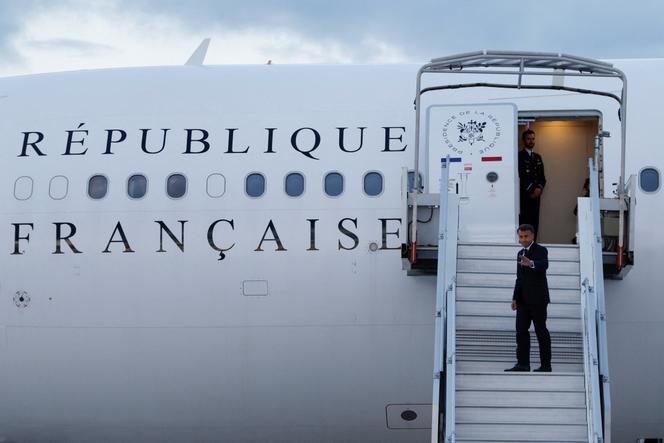


On January 16, 1985, when violent anti-independence riots had led the French government to declare a state of emergency in New Caledonia, François Mitterrand was interviewed on French television live from the Elysée. The president alluded to his concern about the situation. "Would you go so far as to go to New Caledonia?" questioned journalist Christine Ockrent. "But yes, madame, I am going to New Caledonia," replied the president, to everyone's surprise.
"Can we know when?"
"Tomorrow."
"Tomorrow, Thursday?"
"Tomorrow, Thursday."
Almost 40 years later, Emmanuel Macron subliminally re-enacted the same scene. He flew to Nouméa on the evening of Tuesday, May 21, eight days after riots broke out in the archipelago. So far, six people have lost their lives and a state of emergency was declared on May 15. The announcement was made by government spokeswoman Prisca Thévenot at the end of the Council of Ministers meeting at midday.
Though the surprise effect was comparable to the one achieved by his Socialist predecessor, Macron's visit has been, according to Le Monde's sources, largely improvised. The president of the Caledonian government, Louis Mapou, learned of the news from the press, at the end of the cabinet meeting. As did all the local elected representatives.
The French president is visiting New Caledonia at a time when the restoration of republican order he called for last week is far from being achieved. According to Agence France-Presse (AFP), Nouméa was still the scene of localized clashes on Monday night, with roadblocks either expanding or being re-constructed in places. Several witnesses reported loud bangs and clashes. "The island closest to paradise has become the island closest to hell," argued Michel-Marie Bernard Calvet, the archbishop of Nouméa, in his Pentecost homily on Sunday morning. The return to calm "is continuing throughout the territory," described Louis Le Franc, the French high commissioner to New Caledonia, on Tuesday.
Accompanied by Interior Minister Gérald Darmanin, Defense Minister Sébastien Lecornu and Overseas Territories Minister Marie Guévenoux, Macron will spend Thursday on site. The aim will be to "renew the thread of political dialogue" and "anticipate economic reconstruction," as Prime Minister Gabriel Attal summed up before the Assemblée Nationale on Tuesday.
Bogged down by the New Caledonian issue, the French president has convinced himself over the last few days that he would not get the three-fifths majority at Congress on the constitutional bill that has set things alight on New Caledonia. The crisis in Nouméa, the change of heart of Marine Le Pen's far-right Rassemblement National party – which now says it is in favor of a referendum on self-determination – and the divisions in the ruling coalition have all weighed on Macron's decision to take the whole affair in hand.
You have 55.58% of this article left to read. The rest is for subscribers only.
